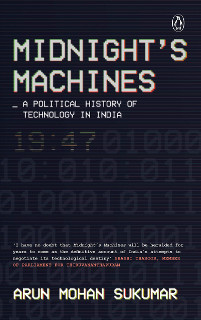[Photo by Science in HD on Unsplash]
Dear friend,
Nurturing crazy ideas does not seem like a business strategy. However, organisations that have the right structure and culture in place can indeed make this a successful practice. In the excellent book, Loonshots, author Safi Bahcall summarises that businesses need to look at loonshots (crazy, risky ideas) as well as manage franchises (manage existing businesses) for survival. But doing this is not easy.
The analogy of water at room temperature and when it is frozen makes the idea easy to understand. When the temperature drops, liquid becomes solid. It now does not resemble its original form, even though everything in it is exactly the same. In his argument, a team working on loonshot ideas has a clear motivation—a very high stake in the outcomes of what they discover or produce, whereas in companies that manage franchises, the motivation shifts to perks and rank which consequently lead to low focus on high-impact outcomes.
So, loonshot ideas can only survive when the teams are relatively small and the high-stake outcome benefits everyone in the team.
We can see how this plays out in the real world. Startups with highly motivated team members are redrawing industry boundaries and inventing new business practices. Why do we choose Spotify or Gaana for music, bookmyshow or makemytrip for booking our next movie or travel experience? Why didn’t record labels create a popular music app or a travel agent like Thomas Cook create a new travel experience? It certainly points to the structural and cultural uniqueness of loonshot teams in startups that drive these successful outcomes.
In order for both loonshots and franchises to be successful inside an organisation, Bahcall argues that the people managing these two activities be kept in separate groups (calling them artists and soldiers) and be provided different tools and operating structures, because artists like to try new things, whereas soldiers want predictability and less risk. But an even trickier need would be to foster a healthy flow of ideas and feedback between the two groups. Through examples from successful organisations, Bahcall provides a well thought out framework for balancing loonshot activities with franchise activities.
I am drawn to this book also because it tells the story of how the US military beat the technologically advanced Germans by out-inventing them in a very short period of time. Vannevar Bush quit as dean of engineering at MIT and moved to work with the US government. He is credited with building breakthrough technologies that helped win the war. US President Franklin Roosevelt honoured Bush and asked him to develop a blueprint for how the Americans could stay ahead of the rest of the world in scientific pursuits. Bush published a report that set the stage for the oversized impact US technologies have had on the world.
That makes us think about the lack of technological innovations India as a country has produced. Yes, we do have a few things under our belt, but by and large we don’t have any that have made a global impact. In a review of Arun Mohan Sukumar’s book Midnight’s Machine, N Dayasindhu provides a good perspective on why this is so. Please read the extract from the book as well as the review for a good overview of the challenges in India and the unintended consequences of the Indian government’s policies on technology development.
Have a great week ahead!
CS Swaminathan
Featured Stories
Why Indian technology projects haven’t made global impact

Indian technology has evolved in the context of the country’s politics. A review of ‘Midnight’s Machines: A Political History of Technology in India’. (N Dayasindhu. Read Time: 7 mins)
The cooker affair: A cautionary tale of using science for political ends

In this extract from the book 'Midnight's Machines', Arun Mohan Sukumar asks the question, was it ambition or naïveté, or both, that nudged scientists towards unviable projects like the solar cooker? (Read Time: 7 mins)
What We Are Reading
Nature’s solution to climate change
Finance & Development, IMF | A strategy to protect whales can limit greenhouse gases and global warming. "When it comes to saving the planet, one whale is worth thousands of trees." (By Ralph Chami, Thomas Cosimano, Connel Fullenkamp, and Sena Oztosun)
You should know about this Chernobyl fungus that eats radiation
Popular Mechanics | It could shield us from deadly rays. (By Caroline Delbert)
Why astrology matters
Nautilus | Seeing meaning in the stars is a vital part of the scientific story. (By Michael Brooks)
From Our Archives
The ground beneath India’s feet

From a distance, India looks pretty. But the ground it stands on is shaky. Policies framed in Lutyens’ Delhi are distanced from Indian realities. Entrepreneurship is the victim. (By Charles Assisi)
Paving the road for world-beating software products from India

India’s new software products policy marks a watershed moment in its economic history. Can the nation make it count? (By Amit Ranjan)

